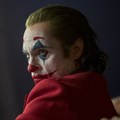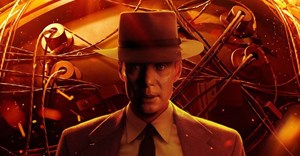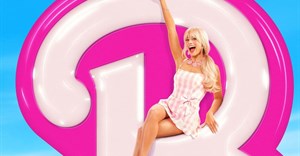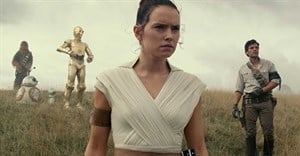
Subscribe & Follow
Todd Phillips's Joker doesn't reach the lofty heights it's reaching for
A lot of the visual style made me think of Lee Bermejo’s illustrations in Brian Azzarello’s brilliant 2008 graphic novel, Joker. The end result does bear some resemblance but you can see that there isn’t a direct inspiration or anything.

Scorsese in the Batman universe
Some of Alan Moore’s The Killing Joke is in there somewhere. And I can even argue for Grant Morrison’s Arkham Asylum inspiring a lot of the film’s take on mental health in the modern age.
I would say that writer/director Todd Phillips (War Dogs) went with his own take on this iconic character, though. And the result is a character study that leaves the viewer feeling unsettled.
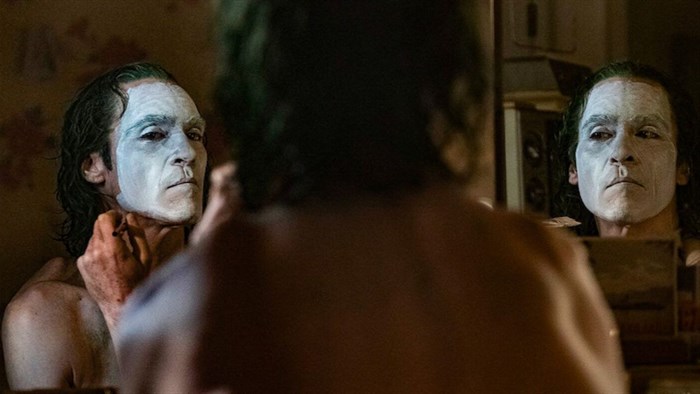
Phillips and his team draw heavy inspiration from Martin Scorsese’s films, Taxi Driver (1976) and The King of Comedy (1982). Quite amusing. Scorsese views all these comic book movies from the last decade as not being “real” cinema – much in the same way that comic books are often not viewed as “real” literature.
The comic book film aspect of Joker sits in the back row of what this film is about, even more so than in Christopher Nolan’s gritty and “realistic” Batman trilogy. So, what I’m saying is that Joker is a Scorsese-esque film that happens to play out in the Batman universe.
Dark and twisted
The film has a lot going for it. The cinematography is gorgeous! This 1980s Gotham City is dark, gritty, straight up dirty and the atmosphere is oppressive. The city itself makes you feel depressed, and it’s the sort of place where people’s psyches are broken.
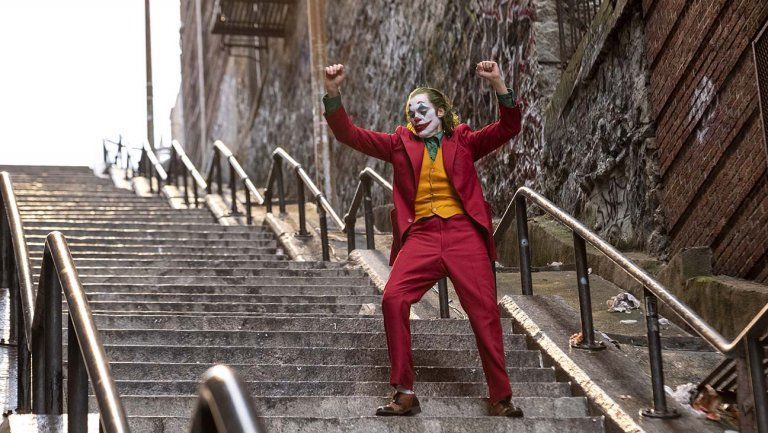
Joaquin Phoenix (Irrational Man) portrays the mentally-troubled comedian Arthur Fleck, who lives with his ill and equally mentally-troubled mother.
He’s bullied at work and in public and just waiting to have a nervous breakdown. Phoenix’s performance is breathtaking but also feels forced at times.
The supporting cast consists of Robert de Niro as Murray Franklin, a talk show host Fleck admires; Zazie Beetz as Fleck’s neighbour and love interest, Sophie Dumond; Frances Conroy plays Fleck’s mother, Penny; and Brett Cullen plays a Thomas Wayne who is more ruthless businessman than the philanthropic version we’re used to.
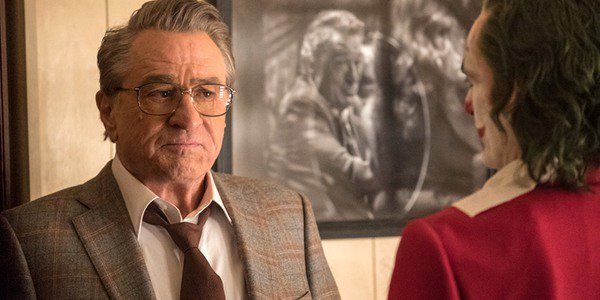
As a character study, Joker focuses on the circumstances that eventually lead to Fleck’s utter and violent breakdown. This is a character suffering from mental illness, who comes from a broken and abusive home trying to survive from day to day in a city whose institutions fail to help him.
Mental illness and economic inequality
This is something we see in our own societies, where funding meant to assist people who need it never seems to actually make it to the institutions responsible for this assistance. Meanwhile, you have people like Thomas Wayne sitting in their mansions and judging the people on the ground as being clowns who are too lazy to do anything with their lives.
Fleck is also misunderstood at work, adding to his difficulties to deal with his reality.
When he finally has a nervous breakdown, a wave of violence ensues and this is where people are divided on what to think of the film.
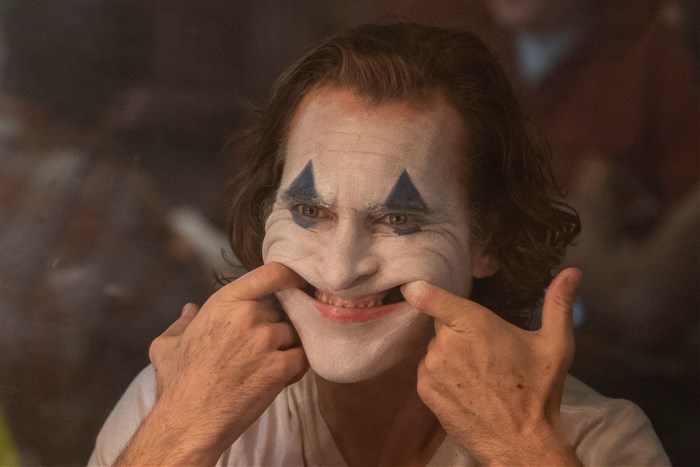
Are we to sympathise with this character? Is the film a warning to us of what happens when we ignore the troubles of those around us? Does the film encourage violence in a time where mass shootings in the United States have become a fairly regular occurrence? It’s all up for discussion.
Joker is a film that tries to take us deep into the troubled mind of someone alienated by society, and explores the catastrophic results of that alienation. The film succeeds in many ways to do this but a lot of it also just feels flimsy, like the whole premise is built on a house of cards.
Especially when you look at all the characters around Fleck, most of them are having just as difficult a time as he is but they don’t go on any shooting sprees. His neighbour is a struggling single mother living in the same squalid apartment block he does. You could centre a whole film around her. The film also doesn’t actually do much work exploring Fleck’s mental illness.

An incomplete character study
He bursts out laughing at inappropriate times and has delusions, but we aren’t given any deeper explanation than that. In the end, I’d say that the film gives us an incomplete character study compared to let’s say a great example like Walter White from Breaking Bad but that’s an unfair comparison, perhaps.
A better comparison is to the other portrayals of the character in cinema over the years, especially to Jared Leto’s take on the character in Suicide Squad and Heath Ledger’s take in The Dark Knight. I still find it difficult to make a comparison because all the other portrayals are very much comic book villains with the usual outlandish evil plans.
Jared Leto’s Joker is silly at best and Heath Ledger’s version makes for a better comparison. The Heath Ledger version has the advantage of being able to stay shrouded in mystery and that being the whole point. He’s a force of chaos and we don’t know where he got those scars, but that’s what makes him scarier. He’s also not the focal point and responsible for carrying the whole film so it’s easier to praise him as the better Joker.
My verdict is that the film has a lot going for it, and it’s worth the trip to the cinema. The cinematography is a thing of beauty and the acting brilliant (with some over-the-top moments from Phoenix) but the movie doesn’t reach the lofty heights it’s reaching for.







